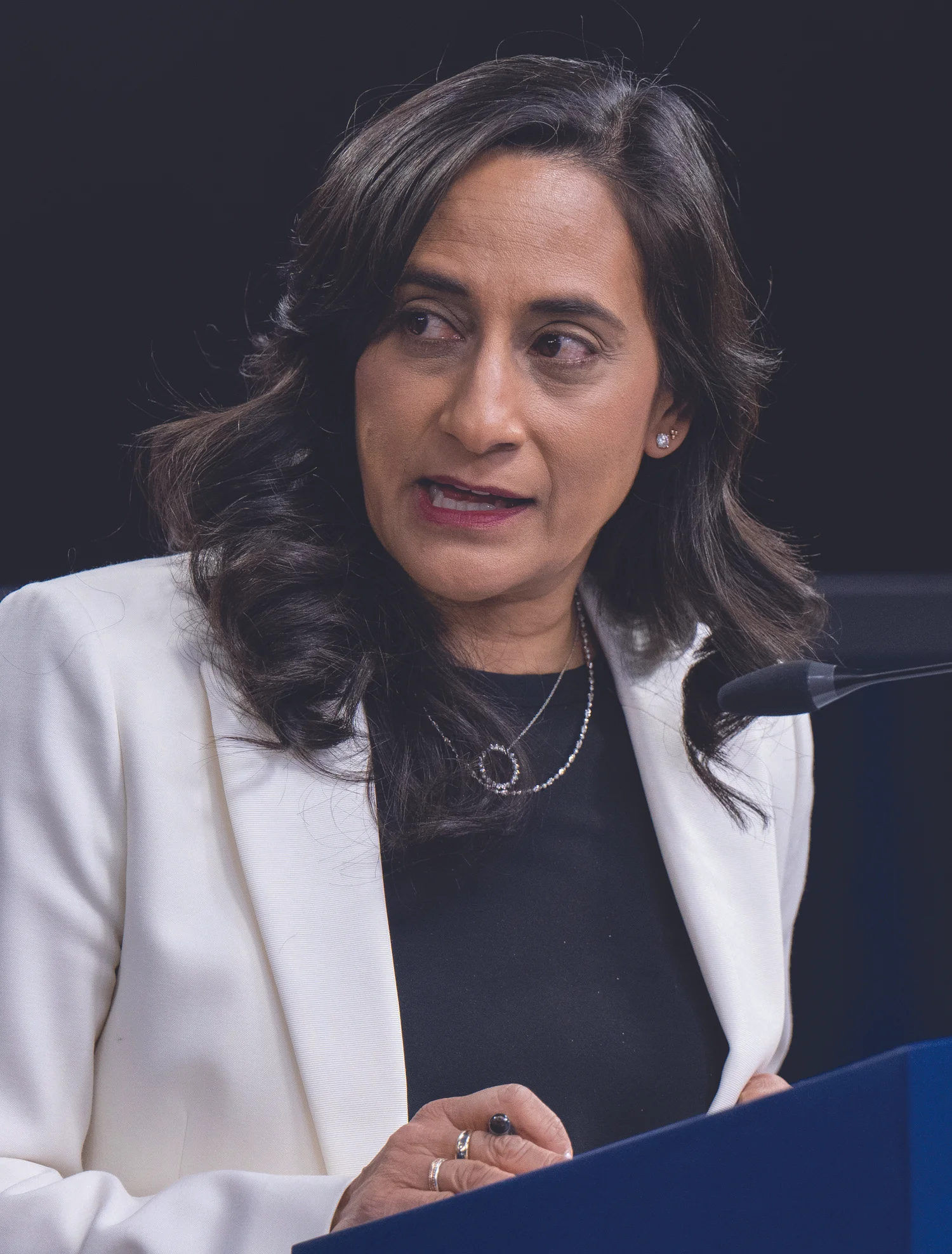Volume 29 Issue 12
By David Pugliese
Ukraine continues to show its masterful command of propaganda as the war with Russian continues. A case in point is its production of a video to thank Canada for the weapons and money it has supplied.
Ukraine has been doing this for a number of nations, including the United Kingdom, in which it invoked James Bond. The video for Canada includes lots of imagery of equipment and for good measure a clip from SCTV’s Bob and Doug McKenzie.
Irelyne Lavery of Global News reported Dec. 9 on the video although instead of describing it as propaganda the journalist labelled it a “gracious thank you to Canada.” The Global report included responses to the video from Defence Minister Anita Anand and
Chief of the Defence Staff Gen. Wayne Eyre. Eyre not only promised more military aid but ended his message with “Slava Ukraini.”
Slava Ukraini (Glory To Ukraine) first emerged in 1917 but became more widespread when in the 1930s it was adopted by the Organization of Ukrainian Nationalists, the Ukrainian Insurgent Army as well as becoming the official slogan of Stepan Bandera’s OUN-B. Bandera collaborated with the Nazis as well as fighting the Russians. His OUN-B and the Ukrainian Insurgent Army were implicated the murders of up to 100,000 Poles as well as an untold number of Jews during the Holocaust.
Eyre’s invocation of a fascist salute was denounced by some Canadians on social media, but the general seemed oblivious to the criticism.
On Dec. 3 the CBC’s Murray Brewster had an analysis stating that Sweden, who is set to join NATO, was boosting its defence budget and – unlike Canada – would hit NATO’s defence spending target of two per cent of GDP.
To the average reader the analysis would appear to be damning to Canada. Indeed, it was pushing the standard line from retired generals, the defence industry and some academics that Canada is a NATO laggard in spending.
What Brewster’s analysis didn’t contain was the fact that Canada is ranked sixth in NATO in spending on defence in actual dollars.
More importantly, it didn’t break down the numbers Sweden hopes to spend on defence. That country is proposing to increase its defence budget to $12 billion U.S. ($16 billion Canadian) in 2028. In 2022 Sweden allocated $7.3 billion for defence or $9.9 billion Canadian.
Canada currently spends around $21 billion on defence; more than double of what Sweden now spends and $5 billion more than what that country hopes to spend in 2028.
To the Royal Canadian Navy, a Nov. 11 Global News report by journalist Jeff Semple on board HMCS Margaret Brooke was a major publicity coup.
But from a journalistic point of view it had all the earmarks of a trainwreck.
Semple repeatedly and inaccurately described HMCS Margaret Brooke and the other Arctic and Offshore Patrol Ships as navy “icebreakers.” There was not one mention of the significant problems the AOPS are now facing (engine/generator problems, communications issues, contaminated water, slow speed, cost overruns, delays in production, etc).
The Ukrainian war looked like it might spark World War 3 until cooler heads prevailed. Media outlets, relying on Ukrainian sources, reported Nov. 16 that a Russian missile had hit Poland, a NATO member. Ukraine’s president Volodymyr Zelenskyy immediately called on NATO to respond to what he called a “significant escalation” of the conflict. Ukrainian officials said NATO must invoke Article 5 of its charter; an attack on one NATO country is an attack on all. In other words, it was time for NATO to strike back at Russia.
But it turned out Zelenskyy’s claim a Russian missile hit Poland was fabricated. In fact, it was a Ukraine missile, or part of it, that had hit Poland, killing two farmers. Both NATO and the U.S. issued statements confirming the missile was not Russian.
But that message didn’t seem to reach CTV’s Joyce Napier. A week after the incident Napier was interviewing Gen. Wayne Eyre. First, Napier thanked Eyre for his service. (Although this type of “thank you for your service” introduction has a U.S.-feel to it, even American journalists don’t usually do this type of thing.)
With that introduction, Napier jumped into the missile attack: “Um, so now, I want to take you back to, you know, almost two weeks ago when those missiles fell in Poland on the border with Ukraine, Poland being a NATO country, um if the war in Europe, that was close. And, you know, maybe a wake-up call for a lot of us. Are you ready for that?”
Eyre couldn’t bring himself to point out the missile was actually a Ukrainian weapon. Instead, he praised NATO. “So when that happened, uh, very happy to see that NATO took a very measured approach to understanding in war, in fact, on all our operations, first reports are often, uh, often not completely correct,” Eyre said. “And so NATO paused, took a look, gathered the, uh, gathered the intelligence and, and then responded. But make no doubt about it, um, this happened because of Russia’s aggression.”


